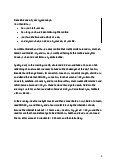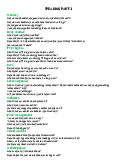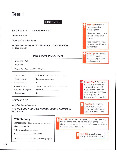



Preview text:
1. All promoters are the subscribers of the company.
False. Not all promoters are the subscribers of the company, promoters may or may not be subscribers of the company.
2. The director can only make contracts on behalf of the company within his actual authority.
True. A director's authority to enter into contracts on behalf of a company is generally limited to
their actual authority, which may be expressly conferred by the company's articles of association,
or by board resolutions, or implicitly based on their position and responsibilities within the company.
3. Public companies can pass written resolutions.
False. Only private companies can pass written resolutions.
Breach of fiduciary duties of directors
Tom and his two sisters, Amy and Aria were directors of AAT company. Tom had convictions for
offences of dishonesty in the past. Amy and Aria knew this but played no part in the company,
demanded no explanations from Tom’s business dealings and did not advise the other directors,
auditors, and the bank of his convictions. Tom took nearly £60m in fictitious loans, false facility
letters and by misappropriation of company funds.
The Court of Appeal held that Amy and Aria were, or ought to have been, aware of various
matters in relation to the fraud perpetrated on the company by Tom. As a result, they were liable
as they were in breach of their fiduciary and common law duties of care owed to the company.
Pre incorporated contract
ABC Company was in the process of being formed to purchase land and develop it for
settlement. Before the company was incorporated, Tom and John are promoters, entered into a
contract with Jack for the purchase of coal mining rights on the land intended to develop. The
contract was expressly made subject to the incorporation of the company. After the company was
incorporated, ratified the contract, and began purchasing coal from the Jack. However, a dispute
arose over the quality of the coal, and the company refused to pay for some of the shipments.
Jack sued the company for breach of contract. The court held that because the contract was
expressly made subject to the incorporation of the company, it was not binding on the company
until after it was incorporated and had ratified the contract. However, the court also held that the
promoters who signed the contract on behalf of the future company were personally liable for
any breach of the contract that occurred before the company was incorporated. Lift the Corporate Veil
Company A is a limited company and buys shares of B limited by investing $20000. The
dividend received will be reflected on the profit and loss account of company A and the company
staff will receive a bonus based on their performance and the dividends the company has
invested. A few years later, the company transferred shares of B limited to C Limited (a company
owned by A limited). And the transfer of those shares is not reflected in the profit and loss
account of company A, thus reducing the bonus that the staff receives. The court held that C
limited had neither assets nor business, its purpose was only to receive shares, so the court "Lift
the corporate veil" and concluded that C Limited was created to reduce the amount paid to its
staff as an annual bonus. Court voids the subsidiary of A company is C limited. Corporate Veil
Company ABC is a limited liability company. Andy is the owner of ABC company. Andy, as a
representative, on behalf of ABC company, borrowed a sum of money from a friend - Tom to
serve the production activities of ABC company. This money was transferred to Company ABC's
bank account. When Tom needs this money urgently, company ABC could not repay it due to
financial difficulties. Tom sued Andy for dues. After all consideration, the court said that the
corporate veil could not be lifted because when borrowing money from Tom, the borrower was
company ABC and Andy was only the representative, the money was also transferred to
Company ABC. So company ABC is responsible for this debt. Apparent Authority
Frank is a director of Bridalwear Ltd. He has never been appointed as managing director
formally, but for the past 10 years he has conducted the day-to-day business of the company as if
he had been. The other directors and shareholders, Flora and Gail, have never objected as they
have considered him to be doing a marvelous job. One day, a little out of character, he decides
that the company should branch into selling floral bouquets and buttonholes for weddings as a
sideline. He contracts to buy oasis and baskets to the value of £3,000.
=> Frank has acted within the apparent authority of a managing director to enter into all
commercial contracts in relation to the company’s business.
Breach of fiduciary duty of company secretary
Amy is the company secretary of The Covent Garden Market Authority (CGMA) since 2006 and
was responsible for managing the day-to-day operations of the organization. In 2009, the CGMA
announced plans to redevelop its premises, which included the demolition of several buildings
and the relocation of some traders. This announcement caused significant controversy among
some traders and local residents, who opposed the redevelopment plans. In 2011, Ms. B met with
two traders who were opposed to the redevelopment plans and provided them with confidential
information about the CGMA's operations and finances, including information about the cost of
the redevelopment and the financial viability of the organization. Ms. B also advised the traders
on how they could use this information to challenge the redevelopment plans. The CGMA
became aware of Ms. B's actions and launched an investigation into the matter. As a result of the
investigation, Ms. B was dismissed from her position and the CGMA took legal action against
her for breach of fiduciary duty. Debentures
ABC Corporation needs to raise funds to finance the construction of a new manufacturing
facility. The company decides to issue a series of debentures to raise the necessary capital. Two
individuals, John and Mary, are interested in investing in the debentures. They each agree to
purchase $50,000 worth of debentures from ABC Corporation.
The debentures have a fixed interest rate of 5% per annum and a maturity period of 10 years.
This means that John and Mary will receive interest payments of $2,500 per year ($50,000 x 5%)
for the next 10 years, and will receive the principal amount of $50,000 at the end of the 10-year period.
As debenture holders, John and Mary are considered creditors of ABC Corporation and have
priority over shareholders in the event of liquidation or bankruptcy. They do not have ownership
or voting rights in the company like shareholders do, but they are entitled to receive their interest
payments and principal amount according to the terms of the debenture agreement. Company off the shelf
Sarah is a small business owner who wants to expand her business into a new market. She has
heard about "off-the-shelf" companies and decides to purchase one instead of forming a new
company from scratch. Michael is a company formation agent who specializes in setting up "off-
the-shelf" companies. He has a number of pre-registered companies available for sale, and Sarah
decides to purchase one of them.
After Sarah chooses the company she wants to purchase, Michael transfers the share to her and
resigns as the original director and secretary of the company. He then ensures that a new director
and secretary are appointed to the company and notifies Companies House of his resignation.
Sarah can now begin operating her new business immediately, using the pre-existing company
structure. This saves her time and effort in setting up a new company from scratch, and allows
her to focus on growing her business in the new market.
1 Anyone can become the company secretary in UK. => false Because:
With the public company, a person want to become a secretary need have suitably qualified, such as: ACCA,....
With the private company, a person want to become a secretary needs no qualification
2 In UK, to be incorporated, every company must be registered under the Companies Act 2006. => True
is this day incorporated under the Companies Act 2006 as a private company, that the company is
limited by shares, and the situation of its registered office is in England and Wales.
3.The agency relationship is created only by a written agreement. False.
An agency relationship can be created by a written or verbal agreement, or it can even be implied
through the actions and conduct of the parties involved.
1.Take an example about the company "off the shell".
Sarah is a small business owner who wants to expand her business into a new market. She has
heard about "off-the-shelf" companies and decides to purchase one instead of forming a new
company from scratch. Michael is a company formation agent who specializes in setting up "off-
the-shelf" companies. He has a number of pre-registered companies available for sale, and Sarah
decides to purchase one of them. After Sarah chooses the company she wants to purchase,
Michael transfers the share to her and resigns as the original director and secretary of the
company. He then ensures that a new director and secretary are appointed to the company and
notifies Companies House of his resignation. Sarah can now begin operating her new business
immediately, using the pre-existing company structure. This saves her time and effort in setting
up a new company from scratch, and allows her to focus on growing her business in the new market.
2.Take an example about the apparent authority of the director.
Z is an electronics trading company, A is both a major shareholder and a CEO. When Z Pld
suffered a loss, in order to have money, A signed a loan contract with Bank C on behalf of the
company and received a floating fee. However, when the payment was due, Z Plc refused to pay
the bank, believing that A could not enter into a contract with C bank without the approval of the
BOD as stipulated in the company's articles of association C Bank sued Z Pld and demanded that
Z Pld pay C Bank the borrowed money. The court held that A has the apparent authority, so A has
the right to sign the contract, and Z is legally obligated to pay C Bank that loan.
3.Take an example about the pre-incooration contract.
ABC Company was in the process of being formed to purchase land and develop it for
settlement. Before the company was incorporated, Tom and John are promoters, entered into a
contract with Jack for the purchase of coal mining rights on the land intended to develop. The
contract was expressly made subject to the incorporation of the company. After the company was
incorporated, ratified the contract and began purchasing coal from the Jack. However, a dispute
arose over the quality of the coal, and the company refused to pay for some of the shipments.
Jack sued the company for breach of contract.The court held that because the contract was
expressly made subject to the incorporation of the company, it was not binding on the company
until after it was incorporated and had ratified the contract. However, the court also held that the
promoters who signed the contract on behalf of the future company were personally liable for
any breach of the contract that occurred before the company was incorporated.




